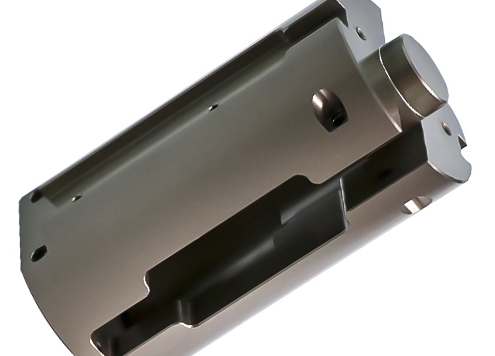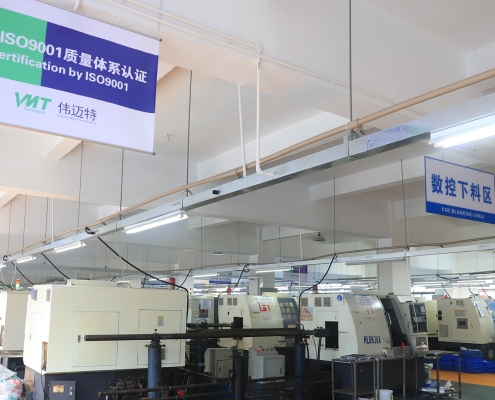What is CNC Aluminum? – A Guide
Struggling with achieving precise, high-quality metal parts? CNC aluminum machining offers a powerful solution to common manufacturing aluminum challenges.
CNC aluminum refers to the process of using computer numerical controlled machines to precisely shape aluminum parts. It’s an ideal method for producing components requiring tight tolerances and excellent surface finishes, widely used across various industries for its efficiency and accuracy. This section will guide you through the intricacies of aluminum CNC machining and its widespread applications.
What is CNC Aluminum Machining?
CNC machining is a subtractive manufacturing process that uses computerized controls and machine tools to remove material from a raw workpiece, creating a custom-designed part. In the context of CNC aluminum machining, the workpiece is an aluminum block for milling or other forms of aluminum for CNC.
The CNC machine for aluminum interprets a digital design file, typically a CAD model, and translates it into precise instructions for the cutting tools. This allows for the creation of intricate geometries and maintains high accuracy, ensuring that the machined aluminum part meets exact specifications. The cnc milling aluminum process, for instance, uses rotating multi-point cutting tools to remove material, while cnc turning employs a single-point cutting tool to shape a rotating workpiece.
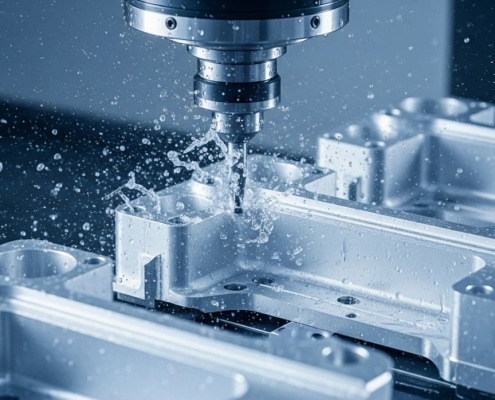
Where Does Aluminum Come From?
Aluminum, one of the most abundant metallic elements in the Earth’s crust, does not occur naturally in its pure form. It is primarily derived from bauxite ore, a sedimentary rock rich in aluminum minerals. The extraction process begins with mining bauxite, which is then refined into alumina through the Bayer process. Subsequently, alumina undergoes the Hall-Héroult electrolytic process, where it is smelted using vast amounts of electricity to separate pure aluminum.
This raw aluminum metal can then be cast into billets, ingots, or blocks, which serve as the starting material for various manufacturing processes, including cnc metal machining. Knowing where aluminum comes from helps understand its wide range of uses and the energy intensity of its production, leading to sustainable practices in metal processing.
Why Choose Aluminum for CNC Machining?
Choosing aluminum for CNC machining is a strategic decision for many industries due to its exceptional properties. Aluminum offers a unique combination of characteristics that make it highly desirable for precision manufacturing of cnc machined aluminum parts.
- Lightweight and Strong: Aluminum boasts an impressive strength-to-weight ratio, making cnc machined aluminum components ideal for applications where weight reduction is critical, such as in aerospace and automotive industries for lightweighting. Aluminum for CNC provides robust performance without excessive bulk.
- Excellent Thermal Conductivity: Aluminum is an excellent conductor of heat, which is crucial for components requiring efficient heat dissipation, like heat sinks in electronic devices and cooling plates in industrial equipment. This property makes aluminum cnc parts suitable for managing thermal loads.
- Corrosion Resistance: Many aluminum alloys for machining naturally form a passive oxide layer that protects against corrosion. Further treatments like anodizing aluminum can significantly enhance this resistance, extending the lifespan of aluminum CNC parts in harsh environments.
- Machinability: Aluminum is remarkably easy to machine, leading to faster cycle times and reduced tool wear. This excellent machinability of aluminum contributes to the cost-effectiveness of cnc milling aluminum and other aluminum machining services. The ease of cnc cutting aluminum allows for intricate designs and tight tolerances.
- Cost-Effectiveness: Compared to many other metals like steel or titanium, aluminum is generally more affordable, both in raw material cost and the energy required for machining. This makes aluminum cnc machining a cost-efficient solution for both prototyping and production cnc machining of aluminum parts manufacturing. The overall affordable machining of alu cnc makes it a popular choice.
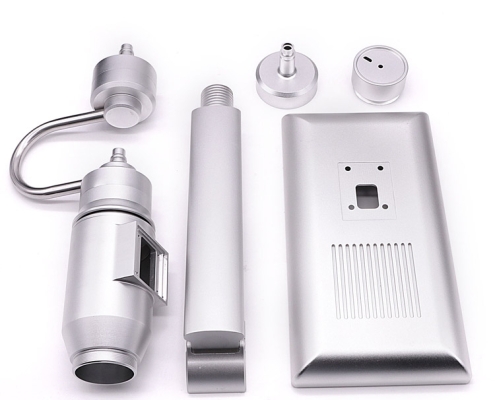
What Types of Aluminum Alloys Are Best for CNC Machining?
The selection of the right aluminum alloy for CNC machining is critical, as different alloys offer varying properties tailored to specific applications. Here are some of the most common and widely used aluminum alloys for machining:
- Aluminum 6061: Often referred to as the “workhorse” of aluminum alloys, aluminum 6061 is highly versatile. It offers good strength, excellent weldability, and superior corrosion resistance, making it suitable for a broad range of applications from structural components to bicycle frames and automotive parts. It’s a prime choice for general-purpose aluminum cnc machining.
- Aluminum 7075: Known for its extremely high strength, aluminum 7075 is comparable to many steels. This alloy is frequently used in the aerospace industry for aircraft structures, missile components, and other high-stress applications where maximum strength is required. While stronger, it is less easily welded than 6061. This is a common choice for demanding cnc machining aluminum parts.
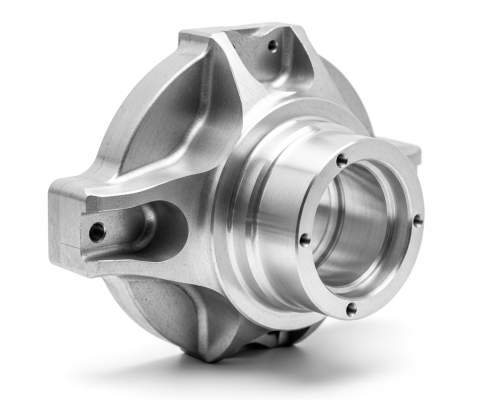
- Aluminum 2024: This alloy is also very strong, particularly in fatigue resistance, making it ideal for structural components in aircraft and transportation vehicles. However, aluminum 2024 has lower corrosion resistance compared to 6061 and 7075, often requiring protective coatings.
- Aluminum 5052: Valued for its excellent corrosion resistance, especially in saltwater environments, and its good formability. Aluminum 5052 is often used for marine applications, fuel tanks, and sheet metal parts that require bending or deep drawing. It offers moderate strength suitable for various aluminum cnc projects.
The choice of aluminum alloy depends on the specific requirements of the final product, including strength, corrosion resistance, weight, and cost. Consulting with aluminum machining services can help determine the best aluminum for machining for your specific needs, considering factors like machining aluminum oxide if dealing with specific surface treatments.
The following is a summary of common aluminum alloys used in CNC machining:
Frequently Asked Questions About CNC Aluminum
What is CNC Machining?
CNC machining is a manufacturing process where pre-programmed software controls tools and machinery to cut, drill, and shape materials like metal, plastic, or wood. It offers high precision, repeatability, and efficiency, making it ideal for producing complex and accurate parts in industries like aerospace, automotive, and medical.
Can CNC Machines Cut Aluminum?
Yes, CNC machines can easily cut aluminum. In fact, aluminum is one of the most commonly machined metals due to its excellent machinability, light weight, and strength. CNC milling and turning are frequently used to produce high-precision aluminum parts for various industries.
Is CNC Aluminum Strong?
Yes, CNC-machined aluminum is strong, especially when using high-grade alloys like 6061 or 7075. While not as strong as steel, it offers an excellent strength-to-weight ratio, corrosion resistance, and durability—making it ideal for aerospace, automotive, and structural applications.
Can You CNC 6061 Aluminum?
Absolutely. 6061 aluminum is one of the most popular materials for CNC machining. It’s strong, lightweight, corrosion-resistant, and easy to machine, making it perfect for parts that require both structural integrity and precision, such as brackets, enclosures, and mechanical components.

